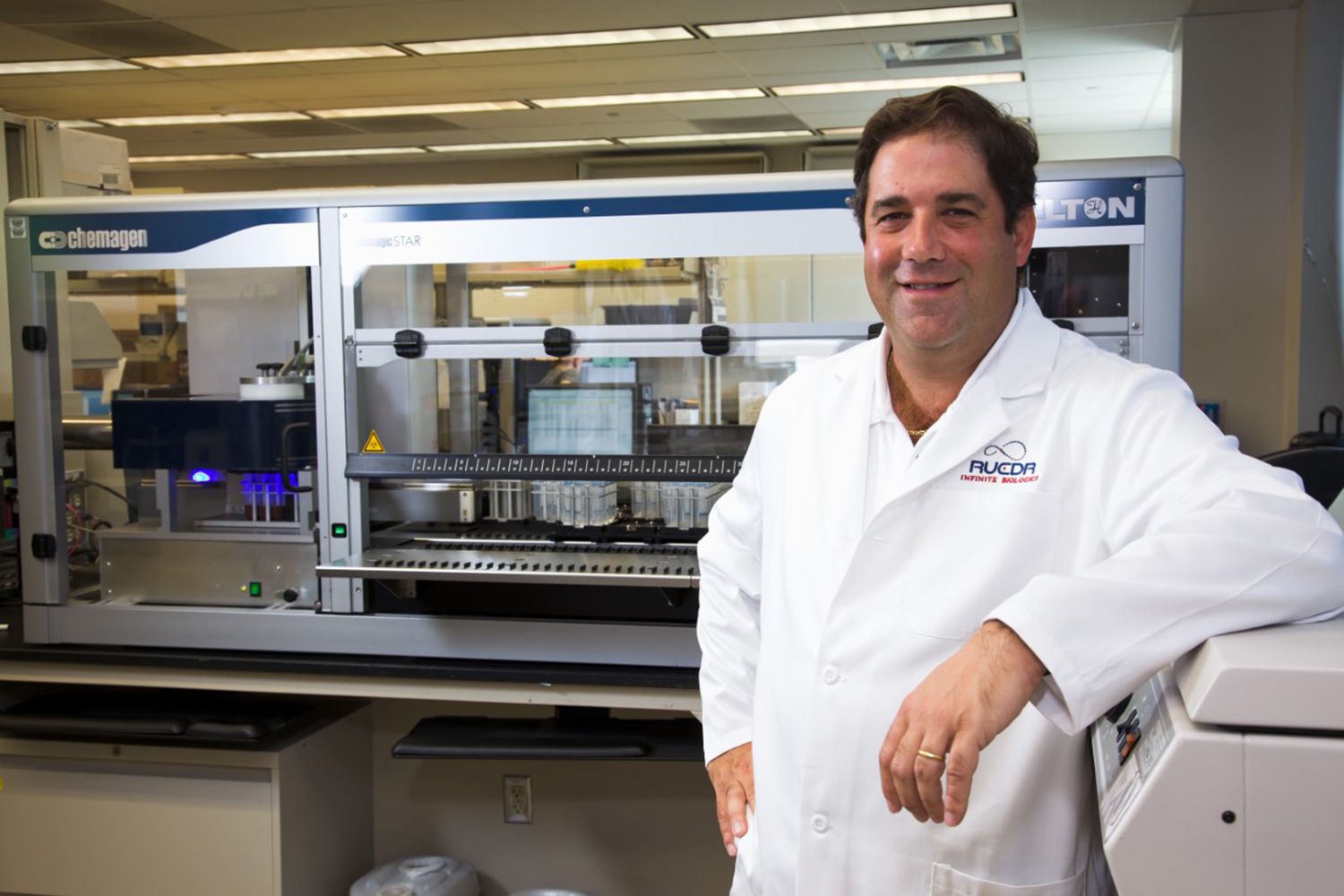Rutgers Scientist Who Developed COVID Spit Test Dies Unexpectedly at 51: He 'Undoubtedly Saved Lives'

Dr. Andrew Brooks, a research professor at Rutgers University who was a key figure in the development of the first coronavirus saliva-based test, has died at the age of 51.
Brooks died unexpectedly on Saturday, according to a statement from the school.
"We at Rutgers offer our heartfelt condolences to his family, including his three children, and with them we take pride in his achievements that will have lasting impact," Rutgers-New Brunswick Chancellor Christopher J. Molloy, Rutgers Biomedical and Health Sciences Chancellor Brian Strom and Rutgers Senior Vice President of Research S. David Kimball said in a joint statement.
During a press briefing on Monday, New Jersey Gov. Phil Murphy recognized Brooks' contributions in the fight against COVID-19, calling him "one of our state's unsung heroes."
Last year, in what Murphy described as the "frenetic early days of the pandemic," Brooks and his team at RUCDR Infinite Biologics created a test that can detect biomaterial for the SARS-CoV-2 coronavirus using saliva samples.
RELATED: New York Doctor Who Delayed Retirement to Treat Coronavirus Patients Dies After COVID-19 Battle
According to Murphy, the test — which made it possible for medical workers to test for COVID-19 without using nose and throat swabs or being in close contact with patients — was "one of the first rapid response tests to be put into use anywhere in the country, which has undoubtedly saved lives."
The COVID-19 saliva test was granted emergency use authorization by the Food and Drug Administration in April.
At the time, Brooks said the "impact of this approval is significant."
"It means we no longer have to put health care professionals at risk for infection by performing nasopharyngeal or oropharyngeal collections. We can preserve precious personal protective equipment for use in patient care instead of testing," he said in a statement shared by Rutgers.
"Saliva testing will help with the global shortage of swabs for sampling and increase testing of patients, and it will not require health care professionals to be put at risk to collect samples," Brooks continued. "Saliva testing will also be important for people who are in quarantine because they don't know how long it will be until they are no longer infectious. This will allow health care workers to release themselves from quarantine and safely come back to work."
In addition to his work on the COVID-19 saliva test, Brooks co-authored more than 70 scientific publications, according to Rutgers.
During his career, Brooks also served as an adviser to the FDA, as well as as director of the Harlan GeneScreen Laboratory and co-founding director of the BioProcessing Solutions Alliance.
"We cannot thank Andy enough for all he did across his career,'' Murphy said on Monday. "He will be sorely missed by many.''
Source: Read Full Article
